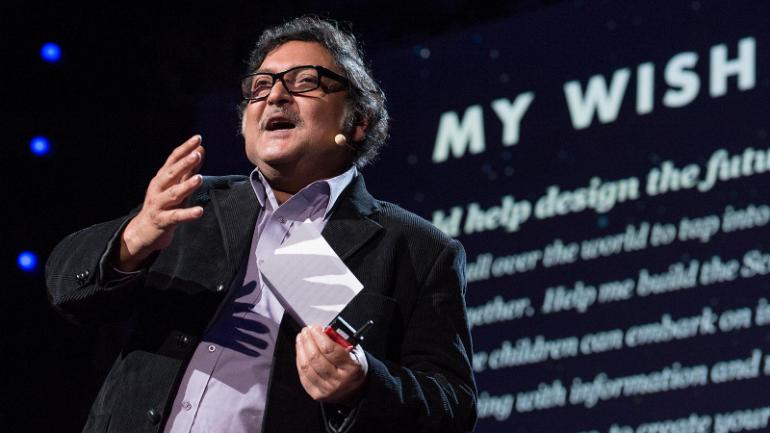Internet in the hands of children is not as scary as parents think it is. This professor conducted a famous experiment in 1999 which showed how exaggerated these fears are.

Whereas most parents try to limit their children's use of the internet, a professor at UK's Newcastle University said on Friday that the internet should be introduced as a formal subject in schools and that children should be allowed to use the internet during examinations.
As shocking as this may sound, the Indian professor stated this based on his observations of how quickly children can learn and teach each other if left alone with the proper resources.
Professor Sugata Mitra was speaking at the 10th School Choice National Conference here organised by an NGO, the Centre for Civil Society.
Mitra is an educator and the 2013 TED Prize winner who helps kids learn to teach themselves.
'Hole in the Wall' experiment
Mitra is known for his 'Hole in the Wall' experiment which he initiated in 1999.
As a part of the experiment, he had dug a hole in a wall in his office in Kalkaji and installed an Internet-connected computer there.
Through the experiment, he saw children learning to use the computer themselves and then teaching each other.
'Teachers need to be friends, not guides or supervisors'
"Children in self-organised learning environment can learn anything by themselves. Teachers need to be friends and not be guides or supervisors," he stressed.
Technology and the internet have dropped an unimaginable amount of resources in the hands of children and if they are treated right, children can explore the resources and teach themselves much better than teachers can.
He suggested that teachers should say to children when they are keen on exploring technology, "You go there, I will go there with you. Take me along". Mitra also listed out some changes that need to be introduced in the way examinations are conducted.
"Introduce the internet as a formal subject in school. Allow the use of the internet during examinations," he said.

